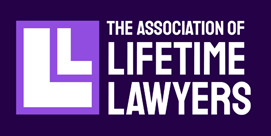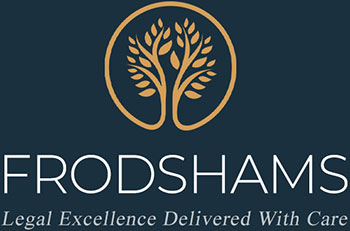Guide to Estate Administration and Our Probate Pricing Structure
When an individual passes away, they either die testate (with a valid Will), or intestate (without a valid Will). Where they die testate, executors are appointed to administer their estate and ensure the estate passes to the beneficiaries of the Will. Where they die intestate, the law will decide who will administer the estate and who will be appointed as an administrator to take on the role which an executor would take had the deceased left a Will. The process to administer an estate can be time consuming and onerous and as such, a probate solicitor is often appointed to assist the executors or administrators in dealing with the estate.
We are obliged to provide you with cost information for our probate services and this information is detailed at the end of this note. The information is a guide only and we therefore encourage you to accept our invitation to our free 30-minute, no obligation meeting where one of our solicitors can give you a full and accurate quote which is relevant to your circumstances.

Head of Private Client
Kirsty Strong leads the private client team. To contact Kirsty please call 01744 626 600 or email info@frodshams.co.uk
Contact us for a 30 minute meeting on a no cost; no obligation basis
01744 626 600
KEY STAGES OF THE ADMINISTRATION PROCESS AND TIMESCALES: Our Probate Pricing
STAGE ONE – INFORMATION GATHERING
The first stage in the administration process involves writing to the various banks and organisations to obtain probate valuations for each of the estate assets and liabilities. This aspect of our work may in some cases involve arranging probate valuations by stockbrokers (for shares) and estate agents, or chartered surveyors (for property).
It also involves writing to pension providers to obtain the relevant information from the pension providers which will be needed to complete the probate forms later.
During stage one, we can usually arrange for one of the banks to release a cheque to pay for the funeral invoice. Once the banks are notified of the death the accounts will be frozen until the Grant of Probate or Letters of Administration is obtained and the only funds that can be released will be to pay for funeral expenses and/or inheritance tax. We can only apply to the bank to release funds once the original funeral invoice is received because the bank will insist on sight of the same.
Stage one, the process of information gathering, can last between eight and sixteen weeks and in some cases more depending on the size of the estate and how long it takes for the various organisations to supply us with the information. Where it does take longer than we are always happy to provide regular updates to keep you informed as to the progress of your matter.
STAGE TWO – PAYING THE INHERITANCE TAX ON TAXABLE ESTATES
Stage two of the administration process involves the drafting of the inheritance tax return to calculate how much inheritance tax has to be paid. The Grant of Probate or Letters of Administration cannot be issued until the inheritance tax has been paid and a certificate (known as Form IHT421) has been issued by Inland Revenue.
The inheritance tax return requires exact probate valuations for each of the assets and exact figures for any debts or liabilities due from the estate. For this reason, we cannot draft the return until stage one has been completed.
Once the inheritance tax return has been drafted it is sent to the Inland Revenue for approval and we will receive confirmation as to how much inheritance tax must be paid. We then liaise with one or more of the banks for a payment(s) to be made from the account(s) to pay the inheritance tax. The bank will usually have its own form which is to be completed and signed by the Executors/Administrators.
When the inheritance tax has been paid the Inland Revenue will issue the IHT421 certificate and we can then move to stage three – the application for the Grant of Probate or Letters of Administration.
Stage two usually takes between four and eight weeks from the drafting stage to receiving the IHT421 certificate.
Where the estate is not taxable, the inheritance tax return is not completed.
STAGE THREE – APPLYING FOR THE GRANT OF PROBATE
Stage three involves drafting the probate forms for Executors/Administrators.
Once the forms are drafted, they are sent out to the Executors/Administrators for approval and signature. The forms are then sent to the Probate Registry for inspection and in most cases the Grant of Probate or Letters of Administration is issued within 12 weeks of receipt by the Registry. Occasionally, the Registry may raise further enquiries or request that extra forms or oaths be signed by the Executors/Administrators. These cases are rare and we advise you further about this if it affects this estate.
Stage three usually takes between 6-12 weeks from the drafting stage to receiving the Grant of Probate/Letters of Administration.
STAGE FOUR – REALISING THE ASSETS AND PAYING THE BILLS
Once the Grant of Probate is received, we move to the fourth stage of the administration process. Stage four involves registering the Grant of Probate or Letters of Administration with the various banks and organisations and asking them to close the account/asset in question. It may also involve arranging for the sale of shares and property.
Once the assets have been realised, and there is cash available, any outstanding bills or debts relating to the estate will be paid and confirmation will be sought from the organisation in question that no further sums are due from the estate.
Stage four usually takes in the region of 6-8 weeks but may be longer if there are substantial assets in the estate, or if shares have to be sold. In cases where a property has to be sold this can take much longer, it really depends on how quickly a buyer is found for the property and how long the transaction takes to complete.
In some cases, it is possible to move to stage five, even though the property has not sold but this we would need to discuss this with you at the time.
STAGE FIVE – WINDING UP THE ESTATE
Once all the assets have been cashed in and the bills have been paid, we can move to the fifth and final stage of the administration process namely, winding up the estate. The last stage involves the following:
a. Finalising the income tax position with Inland Revenue and paying any additional income tax that may become due for the administration period. This usually occurs if any interest or income is received during the administration period. To complete the income tax return, we need to obtain tax certificates and vouchers from the banks and organisations. Some banks are slow in providing these documents and it is also difficult to say how long it will take Inland Revenue to process the matter. Largely, it depends on the tax office involved but the timescale usually takes up to 20 weeks. We sometimes keep a sum of money on account but distribute the rest to the beneficiaries. If no further tax is due, then the money held on account would be distributed at a later date once the tax position is clear. In some cases, this may not be possible, and we would advise you if this is the case.
b. Ensuring that the DWP “2 month” rule has expired. The Department for Work and Pensions (DWP) have two months from the date of the Grant of Probate to make a claim against the estate. The DWP spot check estates to cross reference the assets declared in the probate application against those declared by the deceased during their lifetime. If the deceased did not declare the full extent of their assets, then they may have been receiving too much pension or benefits and in these circumstances the DWP would make a claim against the estate. If we reach stage five before the two months have expired, then it would be against our best advice to distribute the estate however in some cases the executors are prepared to take the risk. For the avoidance of doubt, if a claim was made against the estate and all the funds had been distributed then liability for repayment would rest with the Executors and not necessarily the beneficiaries. In cases where our firm are appointed as executors, we would not consider distributing the estate until the two months have expired. There are other limitation periods to be considered and we would advise you on these once instructed.
c. Preparing the final estate accounts and distributing the estate to the beneficiaries or transferring assets such as property/shares into the names of beneficiaries.
The timescale for stage five varies greatly from file to file depending on the size of the estate and other factors but typically it can take between six to twenty weeks and longer in exceptional cases were the tax affairs are complex or delays occur which are beyond our control.
Please note that in cases where Frodshams have been appointed as Executors, we will not distribute the estate to the beneficiaries or transfer any assets over until the period of 10 months has lapsed from the date the grant of probate is issued. This is because a claim can be made against the estate under the Inheritance Provision for Dependents Act 1975. This Act allows certain family members to make a claim against the estate where they can establish that they are a dependent of the deceased person and insufficient provision has been made for them under the terms of the will. However, once 10 months expires from the date of the Grant of Probate, they can no longer make a claim. Some beneficiaries decide to fund early distribution insurance so that they can receive their inheritance earlier.
CONCLUSION
Considering the four stages above, a typical estate which is liable for inheritance tax can take anywhere between 9 and 18 months to administer and sometimes longer if for example there are difficulties in selling a property or other exceptional circumstances arise.
PROBATE PRICING/COSTS
We charge for our full estate administration services on time spent basis at the hourly rates of the team members involved (detailed below). We may also charge a fixed percentage of the estate dependent upon the level of assets and risk involved in your case. The maximum percentage we charge on cash assets is 1.5% and on property is 0.75% plus VAT (currently at 20%). We use the same pricing structure whether the executors are partners in this firm or individuals. An exception to this standard rule is where we are asked to assist you only with the application for the grant of probate in which we will endeavour to agree a fixed fee with you as detailed directly below.
Grant of Probate Application only
£995 plus VAT (currently at 20%) (£1,194) and disbursements
Our service includes;
- A calculation of the size of the estate and any tax liabilities based on valuations provided by you.
- Completion of the probate application, including statement of truth.
- We will obtain the Grant and provide you with copies to enable you to deal with the administration of the estate.
It is important to note that the above cost is based on the estate not being subject to inheritance tax or other complications. It is not possible to provide a fixed fee estimate where the estate is subject to inheritance tax as the cost will depend upon the specific facts of the case. As a guide, we would estimate that our legal fees in such matters would be in the region of £1500-£2000 plus VAT currently at 20% and disbursements (detailed below). Where inheritance tax is payable and we are acting to obtain the grant only, and not in the wider administration of the estate, we would base our legal costs on a time spent basis at the hourly rates of the team members involved (detailed below). Examples of factors involved when agreeing a cost estimate on this type of matter are:
- Whether you are claiming any inheritance tax reliefs
- The number of assets within the estate
- Whether any gifts have been made by the deceased during their lifetime
- Investigation into the estate by the DWP
- Missing assets
- Additional searches requested
- Requirement for us to deal with valuation of assets
- Disagreements between executors
- Foreign assets
- Company assets
Full Estate Administration
We can give you some broad guidance on estate costs, where there are no disagreements between executors, administrators or beneficiaries and where the estate is located in the UK only. Please note that the costs detailed below do not include costs associated with the sale of property.
£3,000 – £5,000 plus VAT currently at 20% (£3,600-£6,000) and disbursements plus the value element referred to above – Simple UK estate of less than £200,000 spread across less than 5 institutions and one residential property and where there is a valid will.
£5,000 – £15,000 plus VAT currently at 20% (£6,000 – £18,000) and disbursements plus the value element referred to above – Simple UK estate where estate funds are in excess of £200,000 but under £1,000,000, less than 4 beneficiaries, one residential property and where there is a valid will.
£10,000 – £45,000 plus VAT currently at 20% (£12,000 – £54,000) and disbursements plus the value element referred to above – Complex estate potentially with but not limited to inheritance tax liability, various legacies, foreign and/or business assets, high or complex level of assets, more than one property, inheritance tax reliefs may need to be claimed.
£15,000 – £70,000 plus VAT currently at 20% (£18,000 – £84,000) and disbursements plus the value element referred to above – Highly complex estate as with complex estate but with foreign property and/or beneficiaries.
There are a number of factors which can increase the fees and timescales shown above which can arise during the course of the administration of the estate. We would of course, keep you abreast of any such factors and increases and agree a new estimate and timescale for dealing. Examples include but are not limited to, investigation into the estate by the DWP, missing beneficiaries, disagreements between executors or beneficiaries, missing or complex assets, claims brought against the estate, complex tax issues, intestacy, variations to the will or intestacy rules, trusts within the estate.
Disbursements
There are certain expenses and taxes which are applicable to the administration of estates. These costs are payable to third parties and are therefore outside of our control. Below is a list of those most likely to arise in the administration of an estate.
- Probate court fee £300 (additional copies are £1.50 each)
- Land Registry Title Documents – £4 plus VAT currently at 20% (£4.80)
- Bankruptcy Search – £3 plus VAT currently at 20% (£3.60)
- Missing Asset Search – approximately £150-£200 plus VAT currently at 20% (£180-£240)
- Legal notices to creditors – approximately £180-£250 plus VAT currently at 20% (£216-£300)
- Certainty Will Search – £99 plus VAT currently at 20% (£118.80)
Our hourly rates for the members of the Private Client team who would carry out work in the administration of estates are as follows:
- Partner £350-£370
- Associate £290
- Solicitor under 5 years post qualification experience £270
- Solicitor under 2 years post qualification experience £235
- Trainee £195
- Paralegal/Legal Assistant £150
Our rates are reviewed annually, and any changes notified to clients. In addition to the rates above, VAT is charged at the rate applicable, currently 20%.
Your matter will be supervised by a senior colleague, either a Partner or Associate, with the routine work often being carried out by more junior Solicitors, Trainees and Paralegals to ensure there is always someone available to take your queries. Once your matter has been allocated to a member of the Private Client Department, you will be able to find out more about their skills and experience by visiting our team page.
Legal Areas














Client Feedback